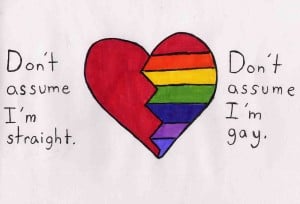So, I’ve been doing a lot of media literacy talks lately.
In the past six weeks alone, I’ve done presentations and panels on media literacy at Carroll University, Widener University, Temple University, and for Women’s Way in Philadelphia.
People are really into it.
So I thought maybe it was about time to do a basic 101 video on what media literacy is, why you should care about it, and how you can get started.
But first, I’d like to point out this really awesome shirt that I’m wearing. It says “Riots, Not Diets” because I eat, sleep, breathe, and even wear body-positivity. And you can get this exact shirt and lots of other really cool stuff at feministapparel.com.
Now, about media literacy.
My interest in media literacy is a symptom of my love for eating disorders. I mean, I don’t—I don’t love eating disorders. But I like learning and talking about them.
And while I would never argue that the media can cause an eating disorder, I do think that the media cultivates an environment where eating disorders thrive. So I think we need to talk about that relationship.
“What relationship?” you say? Well…
Research shows that three out of four girls feel depressed, guilty, or shameful after just three minutes leafing through a fashion magazine. Three out of four. That’s a lot of people.
And you know what? I’m one of those people. When was the last time you bought a fashion magazine? Because I don’t think I’ve so much as opened one in the past decade. And that’s why. Because I realized that I felt terrible every time that I did. That’s real life.
Want some more numbers? I mean, you don’t because they’re depressing to hear, but…
Forty-eight percent of girls self-report wishing they were as skinny as models. And 31 percent admit to starving themselves to lose weight.
And I think this is a problem. Clearly.
And I think that being able to deconstruct media messages is a really good place to start conversations around why we want our life to imitate our art so badly.
And maybe you’re one of those people that thinks the media doesn’t affect you. Maybe you’re one of those people – and trust me, there’s a lot of you, because you’re always all up in my inbox about it – who thinks, “I don’t see an advertisement and then run out and buy a pair of shoes. Advertising has no effect on me.”
Well, I have news for you: Advertising does affect you.
If ad execs can influence the way that you see a font, they sure as hell can have an effect on the way that you see yourself and other people.
Because when you consider how much media American young adults consume, it’s near-impossible to say that it doesn’t have an effect on our lives.
People are consuming 10 hours and 45 minutes of media every day. Every day. And I don’t know about you, but I don’t get that much sleep.
And I’m not trying to say that that’s a problem in and of itself. All I’m saying is that as a culture, we sure do spend a lot of time teaching young people how to decipher the written word, and not nearly enough time teaching them how to read images.
For example, how many of you have read a book for pleasure in the past week? Just raise your hand. Alright, alright. A few of you.
And how many of you have listened to music in the past week – or, you know, watched a YouTube video? Ohh yeah. Yeah. Almost all of you.
And I just think we’re really missing out on a really big component of literacy if we’re not talking about what the media means.
Because here’s the big secret that nobody wants you to know – and I’m totally going to ruin your day: The media has a driving force. And that’s not something we’re really thinking about when we’re watching Real Housewives or Honey Booboo. But it’s the truth.
And the driving force is looking pretty – uhh – status quo-y.
See, because the American media is only owned by six corporations.
And all six of these corporations? You guessed it – owned by rich, white, straight dudes. If all of our media is coming from one demographic, how does that affect narratives?
We’re taking in a whole lot of stereotypes and misinformation if we’re not questioning what we’re watching.
And media literacy – which we can define as a repertoire of competences that enables people to analyze, evaluate, and create media in a variety of modes, genres, and forms – is the answer.
So, to break it down: I like to think of media literacy as the nutritional information on the back of a box of packaged food.
When we check out the nutritional information on food we’re about to eat, we know what we’re going to consume. So if we see high fructose corn syrup or [unintelligible chemical], we, as educated consumers, know that that’s probably not the best choice for us – that there are probably better, more nourishing choices out there.
But if you know that and you want to eat it anyway, more power to you. The important thing is that we analyze, understand, and make informed decisions.
Similarly, we have to do that when we look at media.
So here are some basic questions that you can ask yourself:
1. What is the content of this product? As in, what am I looking at here?
2. Is it really selling what it’s advertising? Like, if you have a woman in a bikini in your commercial, it better be for swim wear and not for, ya know, hamburgers.
3. Who made this?
And 4. Why do they want me to consume it? That is, which demographics benefit from me internalizing this message and which demographics are hindered by it?
And taa-daa! You are now well on your way to becoming an educated media consumer!
All it takes is being able to throw away the idea that “mindless entertainment” is something that exists, training your mind to start asking questions about what you’re consuming, and then starting discussions with the people around you!
And yeah. I get it. You don’t want to be that friend – the kind of friend that I am where watching TV with me is kind of annoying because I’m always yelling at diet industry commercials and being like, “Did you see that, how sexist that was? And look, there was only one person of color in the entire movie!”
But do you really want to hang out with complacent people anyway? I don’t.
Until next time…




















